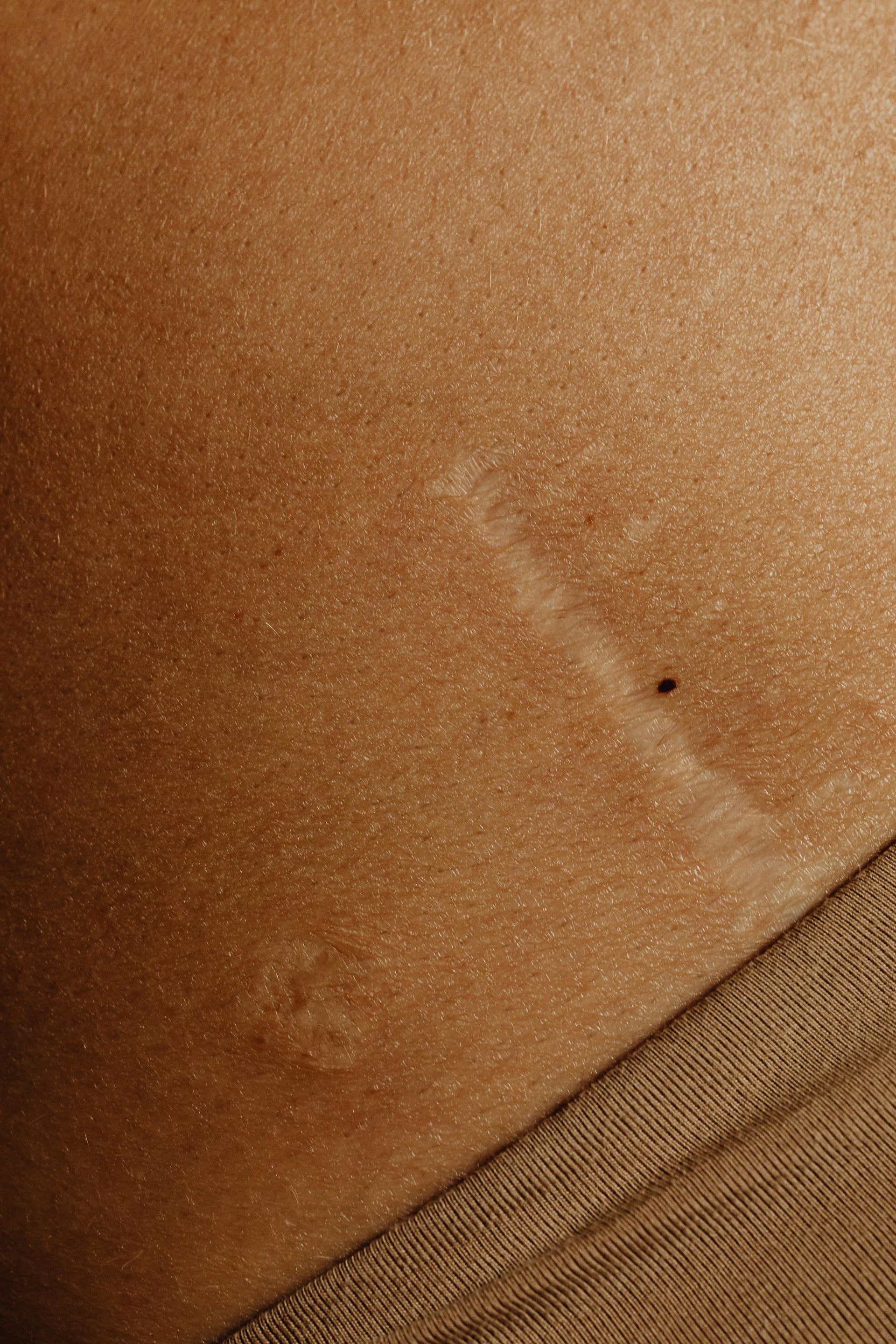Achieving Timeless Beauty:
The Art of Minimally Invasive Cosmetic Procedures
Understanding the Differences Between C1 and C4 Collagen in Scar and Skin Healing

Understanding the Differences Between C1 and C4 Collagen in Scar and Skin Healing
Collagen is a crucial protein in the body that plays a significant role in skin structure, healing, and overall health. Among the various types of collagen, C1 and C4 are particularly important when it comes to scar and skin healing. Here’s a breakdown of their differences and how you can improve your skin using various modalities.
C1 Collagen
- Structure and Function:
- C1 collagen is the most abundant collagen type in the human body, primarily found in the skin, tendons, ligaments, and bone.
- It provides strength and structure, playing a vital role in wound healing and tissue repair.
- Role in Skin Healing:
- C1 collagen is essential for forming new tissue during the healing process. It helps rebuild the skin’s framework after an injury or scar.
- It contributes to the overall elasticity and firmness of the skin, promoting a youthful appearance.
- Implications for Scarring:
- A deficiency or imbalance in C1 collagen can lead to weak or less elastic scars, making them more noticeable.
C4 Collagen
- Structure and Function:
- C4 collagen is less abundant and primarily found in certain connective tissues, including the basement membranes and in some forms of cartilage.
- It plays a role in maintaining tissue integrity and supporting cellular functions.
- Role in Skin Healing:
- While not as central as C1, C4 collagen aids in the repair processes by supporting the overall structure of the skin and contributing to the extracellular matrix.
- It helps regulate the behavior of other cells involved in healing.
- Implications for Scarring:
- C4 collagen's presence is important for the proper organization of collagen fibers in healing tissue. Insufficient C4 can affect the quality of scar tissue and skin repair.
Improving Skin Health and Healing
To enhance skin health and promote effective healing, several modalities can be considered:
- Topical Treatments:
- Collagen-boosting Serums: Products containing peptides, vitamin C, and hyaluronic acid can stimulate collagen production and improve skin texture.
- Retinoids: These can enhance cell turnover and boost collagen synthesis, making them effective for improving scars and fine lines.
- Microneedling:
- This minimally invasive procedure creates tiny punctures in the skin, stimulating the body’s natural healing response and boosting collagen production, particularly C1 collagen.
- Laser Treatments:
- Fractional Lasers: These help resurface the skin and promote collagen remodeling, improving the appearance of scars and enhancing overall skin quality.
- Pulsed Dye Lasers: Effective for reducing redness and improving the texture of scars.
- Chemical Peels:
- These treatments exfoliate the top layers of the skin, promoting new skin growth and stimulating collagen production.
- Radiofrequency Therapy:
- This non-invasive treatment heats the deeper layers of the skin, stimulating collagen production and tightening the skin.
- Injectables:
- Dermal Fillers: These can restore volume and improve the appearance of scars by plumping the skin.
- Sculptra: A collagen-stimulating filler that gradually improves skin texture and volume over time.
- Healthy Lifestyle Choices:
- Nutrition: Consuming a balanced diet rich in vitamins (like vitamin C and E) and minerals can support collagen production.
- Hydration: Drinking plenty of water keeps the skin hydrated and supports overall skin health.
Conclusion
Understanding the differences between C1 and C4 collagen is essential for effective scar and skin healing. By incorporating various treatments and modalities, you can significantly improve your skin’s health, texture, and appearance. Whether through professional procedures or at-home care, focusing on collagen support will help you achieve optimal skin healing and rejuvenation. If you’re interested in personalized treatment options, consider consulting with a skincare professional to develop a tailored plan that meets your needs!
What People Say About Us

“Great natural result. I love ALUNA CENTERS!!”
Caroline
“Amazing service. Can’t wait to get my fillers done!
Nanaz
“Not sure what I did before discovering Dr. Massoudi. "He is super!”
Sanaz
Business Locations
Book Your Appointment Today!
Thank you for contacting us.
We will get back to you as soon as possible.
Oops, there was an error sending your message.
Please try again later.
